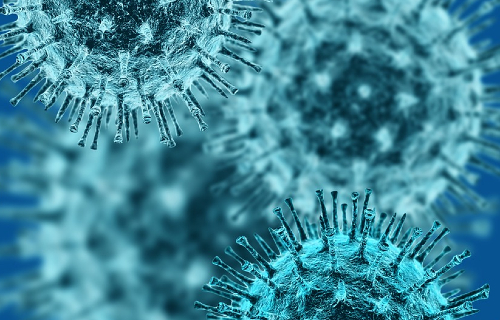 How much immunity do we need against COVID-19? New international research led by scientists in Ireland and published in Nature Communications, has identified a ‘Threshold of Immunity’ to SARS-CoV-2.
How much immunity do we need against COVID-19? New international research led by scientists in Ireland and published in Nature Communications, has identified a ‘Threshold of Immunity’ to SARS-CoV-2.
The study, led by the UCD Centre for Experimental Pathogen Host Research (CEPHR), with the All Ireland Infectious Diseases Cohort Study (AIID Cohort), in collaboration with researchers at UCC, RCSI and Maynooth University, has identified strong relationships between Receptor-binding domain (RBD) COVID19 antibodies, and how well humans can neutralise the SARS-CoV-2 virus.
A RBD is a key part of a virus that allows it to dock to body receptors to gain entry into cells, leading to infection. These are also the primary targets in the prevention and treatment of severe acute respiratory syndrome coronavirus 2 (SARS-CoV-2) – the virus that causes COVID-19.
This new research, co-ordinated by Dr Grace M. Kenny and Sophie O'Reilly from the UCD Centre for Experimental Pathogen Host Research (CEPHR), has demonstrated that a RBD titre of 456 BAU/ml predicts effective neutralisation against both wild type and variants of SARS-CoV-2 with high sensitivity and specificity.
The threshold of immunity was validated across three different periods of the COVID-19 pandemic, including pre-vaccination period, post-vaccination period and the more recent period where most people are vaccinated and have been infected (hybrid immunity). The study also validated the findings in an independent cohort of older people from the VACCELERATE EU trial consortium..
Patrick Mallon, Professor of Microbial Diseases, UCD School of Medicine, and Principal Investigator of the AIID Cohort, explained, “This is the first study to identify a minimum level of COVID-19 antibody that confers protection against different strains of the virus. Even with vaccination, some people remain vulnerable to severe COVID-19. RBD level below 456BAU/mL may indicate sub-optimal immunity to SARS-CoV-2 and need for booster vaccination. An RBD of 456 BAU/ml could also be used as a minimum target for effective vaccination. A RBD below the 456 BAU/mL threshold may also help identify people who should be prioritised for COVID-19 treatment if they get infected.”
He added, “These findings have huge implications for how we use vaccines and treatments and empower people and physicians to make better choices.”
The research involved a team of international researchers supported by funding from the European Commission and Science Foundation Ireland. Read the paper published in Nature Communications here.